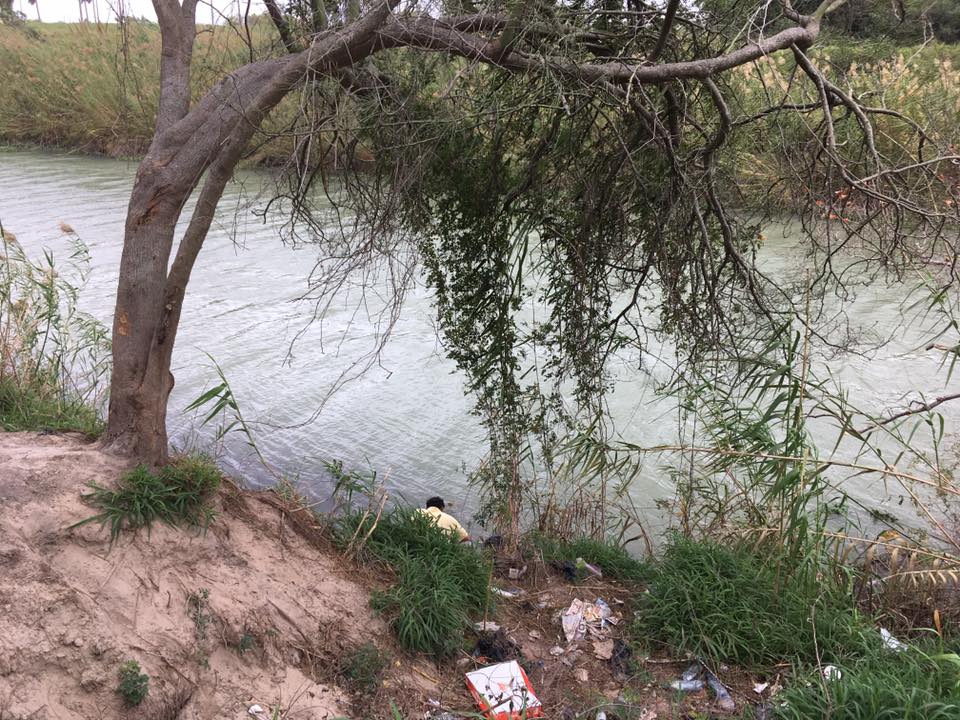Posted by Josh Rubin of Witness at the Border on February 13th
We met her yesterday as we walked along the levee that protects Matamoros from the Rio we name Grande and others call Bravo. On the river side of the levee is the encampment of asylum seekers waiting their turns to learn their fate, and meanwhile existing.
She is very short, under 5 feet tall, and she looks much older than her 64 years. She walked with a companion. They are staying at an albergue, a shelter in town. My guess is that they came to the encampment to find some warm clothing, available there in free stores, tiendas gratis, where donations are dispensed. It was very cold, and the wind was stiffening.

While her friend spoke, the woman struggled a little bit opening a packet of sugar wafers, dropping it once. They are easy to gum, dissolving easily in her mouth, no teeth apparent.
One element of her story I have told in the abstract many times.
She came with her granddaughter, who she raised. They crossed the river and were apprehended. Her granddaughter was taken from her as an unaccompanied minor. She is 16, and now is likely in a detention center, a child’s prison, in the US.
Her eyes reddened as she spoke. She lamented that she could not remember her granddaughter’s phone number, and only had gotten a phone a few days ago, reaching into her bra, pulling it out. She did not appear to know how to use it.
The girl would no longer have her phone. It would be taken away, and she would be allowed only two ten-minute phone calls a week. None would reach the grandmother that raised her, since her phone was new, and her child would have no way to know the number.
She had mortgaged her house in Honduras to pay the coyote the many thousands of dollars it cost to bring them to the banks of the river. They came to meet friends in Dallas, not family, a distinction that may prove fateful for the girl, preventing sponsorship.
As for the woman before us, her first court date is over a month away. She will not find justice there.

